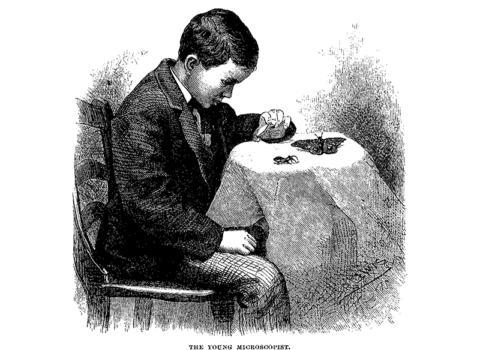The Enemy Within
“Obama [and nostalgia for him] is still running the risk of suffocating reform and encouraging the reelection of Donald Trump.”
Nostalgia for Barack Obama is in full swing. With each passing day, Donald Trump’s insults and general nastiness are making people increasingly regret the absence of a president who behaved like an adult.
Certainly, the restoration of dignity to the White House is devoutly to be wished. Nonetheless, I find myself more and more irritated with the analyses of the former President’s character by anti-Trump journalists. As a very early critic of Obama, I often came up against my colleagues’ lack of awareness, particularly at the start of his spectacular rise to prominence in 2006. At this late date, I would have wished for rather more insight on their part.
But now we have Maureen Dowd, getting it wrong once again. Dowd subscribes to the idea of a celestial Obama who wanted to remain above the sordid political fray. According to this scenario, Obama was too idealistic for raw politics and at the same time too arrogant and condescending to appreciate the realities of Middle America and the grassroots work a professional politician must do. Citing a new book, The World as It Is, by Ben Rhodes, Dowd seizes on something Obama is alleged to have said shortly after Trump’s election: “Maybe we pushed too far. Maybe people just want to fall back into their tribe.” And later: “Sometimes I wonder whether I was 10 or 20 years too early.”
These statements by Obama do in fact sound like an indication that he considers himself exceptional. Dowd, however, is surprised at his ability to ignore what she calls “the hunger for revolutionary change” that was so much in evidence at the rallies for Donald Trump and Bernie Sanders—a hunger born of “the fear” felt by many ordinary people that they had sunk out of sight, into the void, forgotten by Washington. How was it that the outgoing president, the beneficiary in 2008 of the same desire for a clean break after eight years of Bush, could in 2016 support “the most status quo, elitist candidate,” Hillary Clinton? In Rhodes’s view, this is an acute irony, because in the final analysis Obama in 2008 and Trump in 2016 conveyed essentially the same message: Hillary Clinton is “part of a corrupt establishment that can’t be trusted to change.” For Dowd, the answer to Rhodes’s question lies in Obama’s lack of interest in working with the activist wing of the Democratic Party. He wanted to be, Dowd says, “the man alone in the arena,” and he “did not like persuading people to do what they didn’t want to do,” which is “the definition of politics.”
My God, how are we going to awaken from the Trumpian nightmare if our press has so little understanding of American politics? Obama was and remains a pure politician, a member of the country’s most powerful and corrupt political faction, the Democratic Party of Chicago. Having left his work as a community organizer in order to attend Harvard Law School, he returned to his adopted city, law degree in hand, and proceeded to associate with the local political barons and thus to prepare his future. Along the way, he literally married the Democratic machine: as the daughter of a precinct captain, Michelle Robinson Obama had not only grown up in the milieu dominated by the party’s reactionary “boss,” Mayor Richard J. Daley, but was also indebted to him for her economic survival. Her father, Fraser Robinson, worked in the city water plant, where the machine’s soldiers were practically guaranteed employment. It was through Michelle that Barack, in 1991, met Valerie Jarrett, who was at that time the deputy chief of staff for Mayor Richard M. Daley, son of Richard J. and heir to the family fiefdom. In the Illinois Senate and elsewhere, Obama performed favors for his patron, and in December 2006 the boss repaid him handsomely by announcing his support—very early in the electoral cycle—for Obama’s presidential candidacy.
A single event exemplifies the close ties between Chicago’s political boss and his disciple: in October 2009, in the midst of the country’s financial crisis and while engaged in a crucial battle for the reform of the national health care system, President Obama went to Copenhagen in a vain bid to secure the 2016 Summer Olympic Games…for Chicago.
Why did Obama support Hillary Clinton at the country’s expense and in contradiction of his own supposedly progressive and reformist values? Doubtless because Hillary conceded the 2008 presidential campaign in exchange for a promise that she would be appointed Secretary of State and would obtain Obama’s backing for her candidacy in 2016, when it would be, at last, “her turn.” These days, Obama, far from being isolated somewhere up in the philosophical clouds, continues to dirty his feet in the electoral mud, chiefly in order to prevent the allies of the insurgent Bernie Sanders from occupying important positions in the Democratic Party. In his role as overlord of the former regime, Obama is still running the risk of suffocating reform and encouraging the reelection of Donald Trump.



